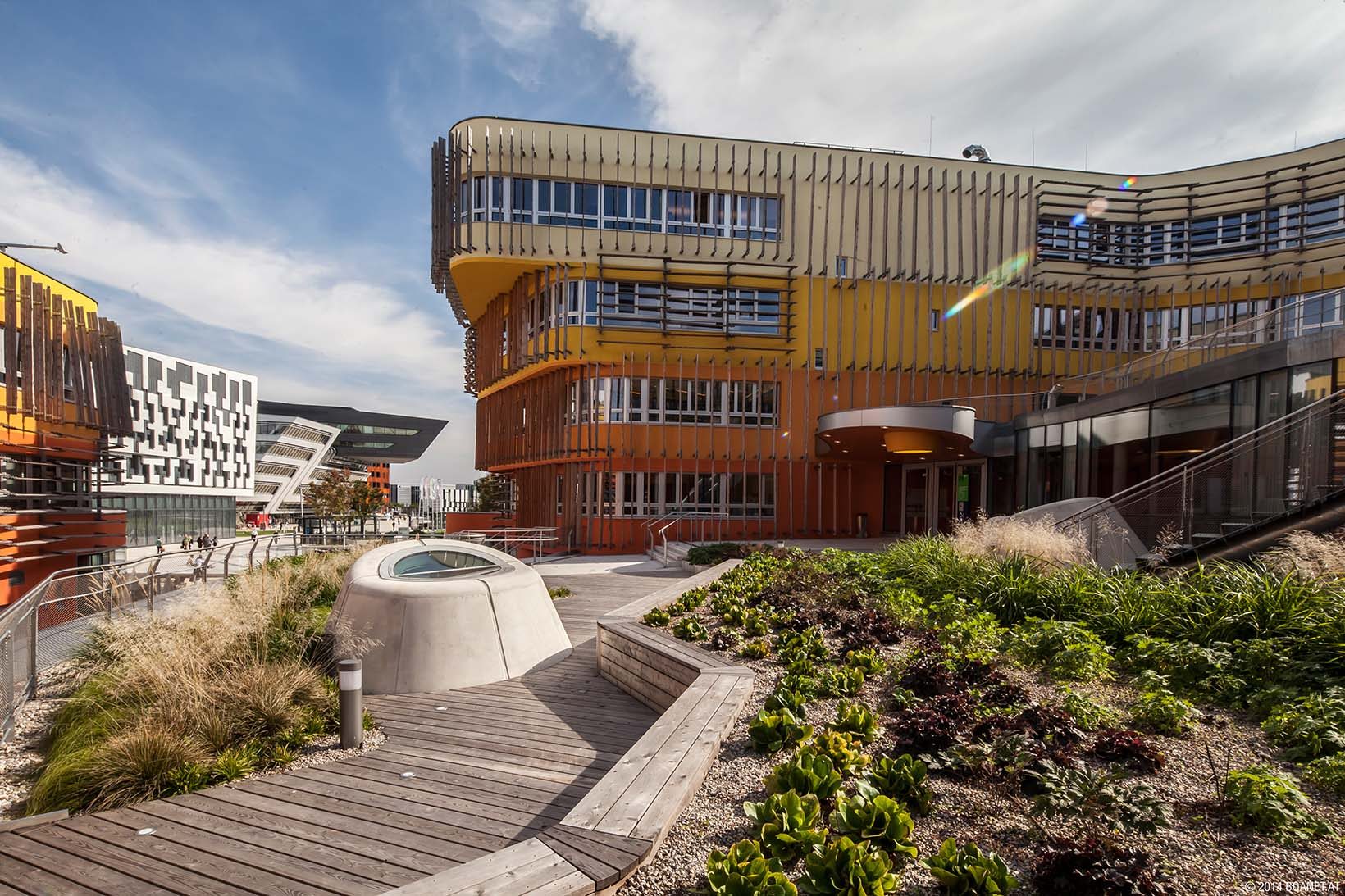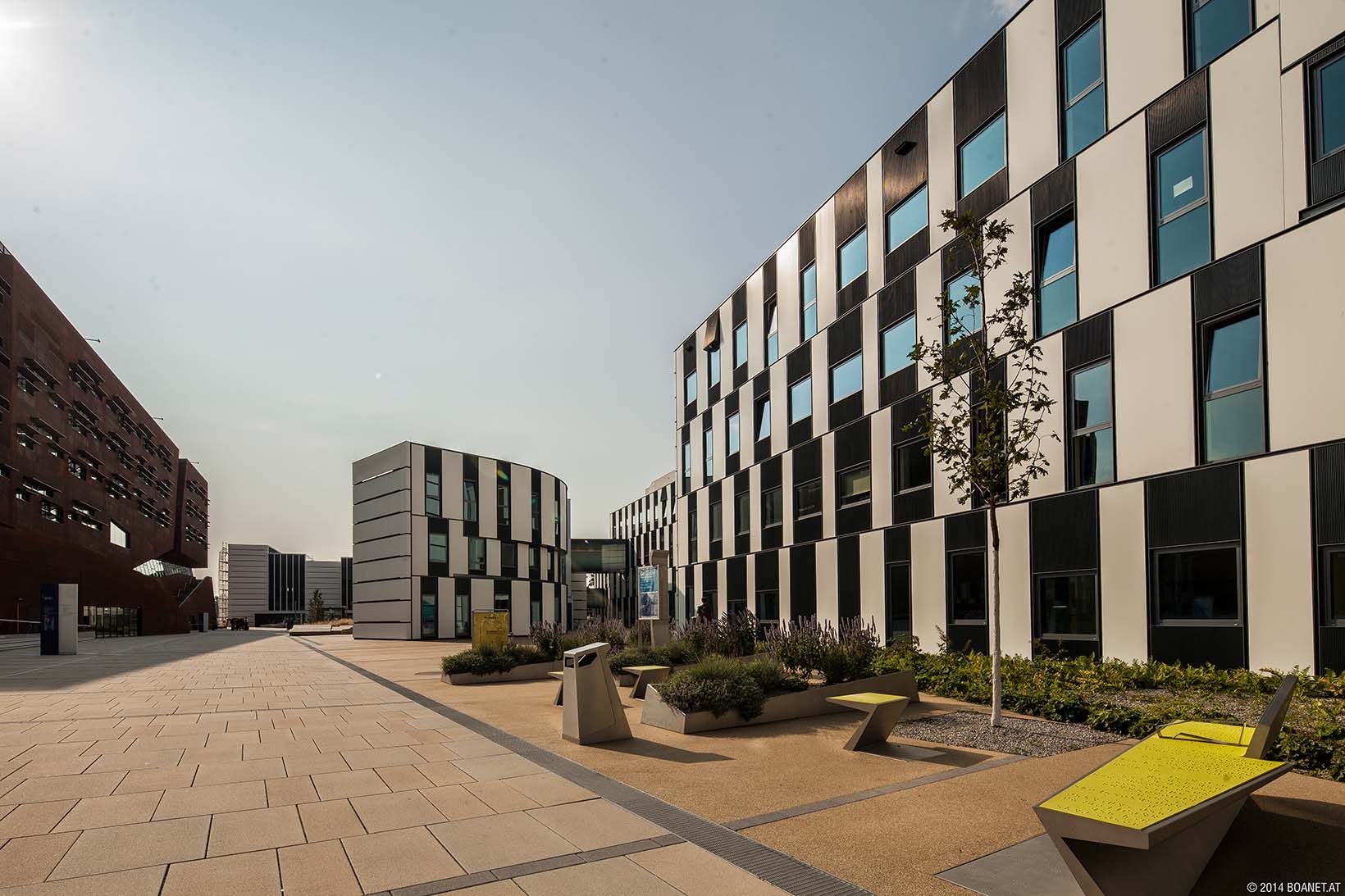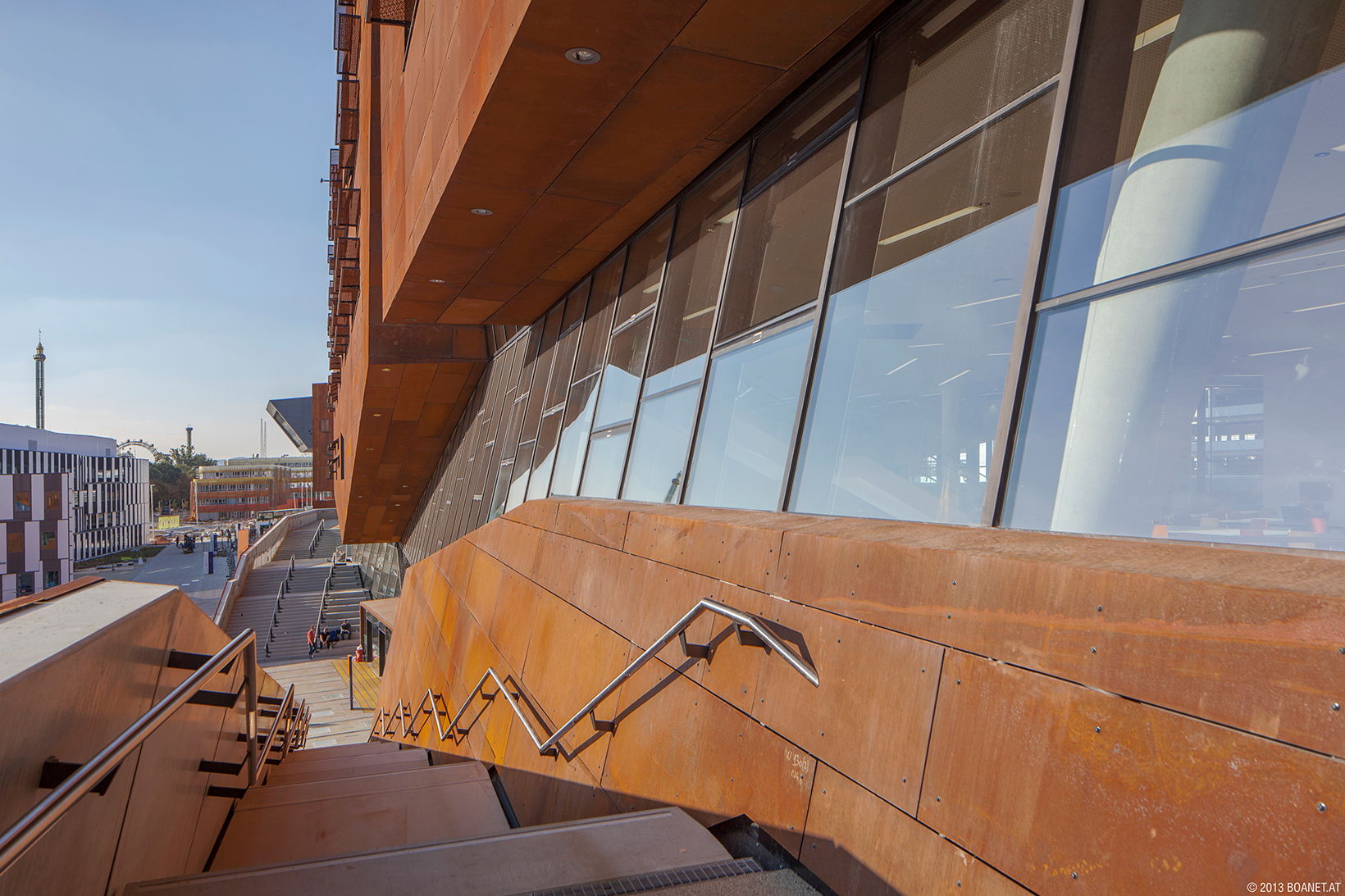International funding agencies
We are proud that many of WU’s research projects were successful in international peer review proceedings in 2019. One particular highlight was the awarding of an ERC Starting Grant. The European Research Council awarded the WU project “Sustainable finance for a smooth low-carbon transition (SMOOTH)” funding for a 5-year period. Emanuele Campiglio (Institute for Ecological Economics) is the project coordinator.
The Horizon 2020 project “Global Stakeholder Platform for Responsible Sourcing” (RE-SOURCING), coordinated by WU (André Martinuzzi, Institute for Managing Sustainability), and the Marie Skłodowska-Curie Individual Fellowship project by Elena Bruni on “Institutional Theory and Discourse Analysis: an empirical investigation of the rhetoric of Anti Vaccination movement” (DISCOURSEVAX) also deserve a special mention.

Horizon 2020
- Global Stakeholder Platform for Responsible Sourcing (RE-SOURCING)
Project head: André Martinuzzi, Institute for Managing Sustainability
The team of the Institute for Managing Sustainability will coordinate the project, which includes a total of 12 partners from 9 countries. The aim of the project is to establish a global stakeholder platform on the responsible procurement of mineral resources in international value chains. - Institutional Theory and Discourse Analysis: an empirical investigation of the rhetoric of Anti Vaccination movement (DISCOURSEVAX)
Project head: Elena Bruni, Institute for Organization Studies
WU’s first MSC Individual Fellowship: Elena Bruni investigates the phenomenon of the anti-vaccination movement and its institutional, social, and societal roots. - A FINancial supervision and TECHnology compliance training programme (FIN-TECH)
Project head: Ronald Hochreiter, Research Institute for Computational Methods
The FIN-TECH project aims to create a European training program for developing joint risk management solutions and increasing the efficiency of supervisory activities. The consortium is made up of 24 universities and fintech partners who share their expertise with supervisory authorities and fintech associations from all 28 EU countries and Switzerland. The project is coordinated by the University of Pavia. - CAScading Climate risks: towards ADaptive and resilient European Societies (CASCADES)
Project head: Irene Monasterolo, Institute for Ecological Economics
The CASCADES project seeks to understand the conditions that cause climate risks to spread beyond their geographical and temporal locations and affect European stability and cohesion. It involves a comprehensive 360° risk assessment and analysis of trade, the value chain, and the financial and political links between Europe and the rest of the world. The project is coordinated by the Potsdam Institute for Climate Impact Research. - Knowledge Graphs at Scale (ITN KnowGraphs)
Project head: Sabrina Kirrane, Institute for Information Systems and New Media
Knowledge graphs are used to chart a field of knowledge, and they are at the core of many different technologies. The aim of the KnowGraphs project is to scale knowledge graphs to be accessible to a wide audience of companies of all sizes and end users. The Innovative Training Network (ITN) is coordinated by Paderborn University.

ERC Starting Grant
- Sustainable finance for a smooth low-carbon transition (SMOOTH)
Project head: Emanuele Campiglio, Institute for Ecological Economics
The project is analyzing the links between decarbonization, the move away from the use of carbon-based energy sources, climate protection, and the financial system.
Erasmus+ (strategic partnerships)
- Financial Literacy International Program
Project head (WU): Bettina Fuhrmann, Institute for Business Education - Supporting Educator’s Pedagogical Application of 360 video
Project head (WU): Michael Sebastian Feurstein, Institute for Information Systems and New Media - Development of Inquiry Based Learning via IYPT
Project head (WU): Jonas Puck, Institute for International Business - Fresh-up Economics. Towards Economic Literacy in Europe
Project head (WU): Andreas Novy, Institute for Multilevel Governance and Development
Interreg Central Europe
- Social Impact Voucher
Project head (WU): Eva More-Hollerweger, Competence Center for Nonprofit Organizations and Social Entrepreneurship

Austrian funding agencies (selection)
Austrian Science Fund (FWF)
The following projects successfully made it through the FWF’s international peer review process in 2019:
- Gendered Economic Relations in Evolution
Project head: Alyssa Schneebaum, Institute for Heterodox Economics - PENNI: Policy Enabled Next geNeration Internet
Project head: Sabrina Kirrane, Institute for Information Business - When nonprofit organizations become business-like
Project head: Florentine Maier, Institute for Nonprofit Management
Oesterreichische Nationalbank Anniversary Fund
The following projects successfully made it through the Oesterreichische Nationalbank Anniversary Fund’s international peer review process in 2019:
- The impact of fiscal policy on the term structure of interest rates within the Eurozone
Project head: Manfred M. Fischer, Department of Socioeconomics - Naina Studies – An investigation into student beliefs about the economy and economic education
Project head: Bettina Fuhrmann, Institute for Business Education - Decolonialization, institutions, and economic development
Project head: Valentin Seidler, Institute for Macroeconomics - Digitally-based self-employment. Capturing the opportunities and challenges of new forms of work
Project head: Petra Sauer, Research Institute for the Economics of Inequality - Foreign direct investment in CEE: Legal measures to protect national interests
Project head: Martin Winner, Research Institute for CEE Legal Studies - Emergency case Italy? Industrial restructuring and European integration
Project head: Joachim Becker, Institute for International Economics and Development - Non-traditional students. Transition and resilience
Project head: Erna Nairz-Wirth, Education Sciences Group

Austrian Research Promotion Agency (FFG)
- Hybrid Domain-specific Language User EXperience (HybriDLUX)
Project head: Stefan Sobernig, Institute for Information Systems and New Media
The HybriDLUX project is developing novel techniques for hybrid collaborative modelling and model-level debugging, 2 technologies that have been identified as key in the adoption of model-driven software development. These techniques and tools will be implemented and evaluated in the context of automotive instrumentation and automotive testing applications.
WU is coordinating the 3-year project. Project partners are TU Wien, EclipseSource Services GmbH, and AVL List GmbH. - Anonymous Big Data
Project head: Thomas Reutterer, Institute for Service Marketing and Tourism
An open exchange of data has the potential to accelerate scientific progress and generate positive welfare effects. At the same time, the protection of personal data is a fundamental right in the European Union, and has recently been standardized and strengthened by the General Data Protection Regulation (GDPR). The aim of this research project is to train generative neural network architectures for sequential, personal data in order to then systematically validate the extent to which the use of such synthetic, data protection-compliant data can be used for third-party marketing research.
WU is coordinating this project. Project partners are Mostly AI Solutions MP GmbH, George Labs GmbH, and the federal statistical authority Statistics Austria.
WU supports excellent research
WU’s High Potential Contact Weeks is a grant program that funds research stays abroad at international universities and research facilities for successful teaching and research associates at pre-doc level. In 2019, 15 researchers received grants from this program.
The WU Visiting Fellow program is a mobility program for post-doc assistant professors.
During a research stay of several weeks, they can continue or complete ongoing research projects at a university or research institution abroad. Ideally, the funding leads to papers published in top journals. Many fellows are also successful in inspiring colleagues from the host institution to come to WU for an exchange visit. 9 researchers participated in the program in 2019.
Post-Doc Research Contracts are intended to support outstanding post-doc-level researchers in their research efforts. The aim is to give them more time for their research and strengthen their ties to the international scientific community. As a rule, Research Contracts provide funding for a stay at an international research institution that matches the grant recipient’s research focus. 4 researchers benefited from a Post-Doc Research Contract in 2019.
Senior Researcher Research Contracts are intended to support outstanding WU researchers in their research efforts by releasing them from their teaching obligations for a sabbatical or semester-long leave of absence. Recipients are explicitly encouraged to use the time for one or more research stays at renowned international research institutions. In 2019, Phillip C. Nell used a Senior Researcher Research Contract to spend time at Singapore Management University (SMU) and IESE Business School.

